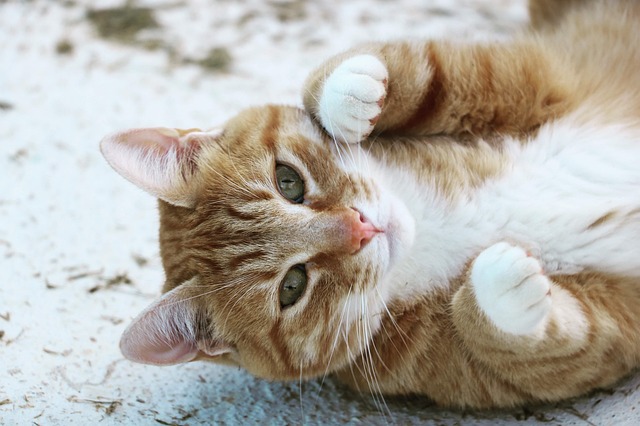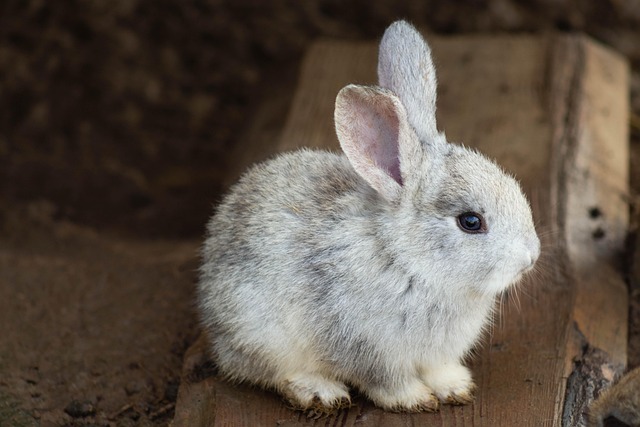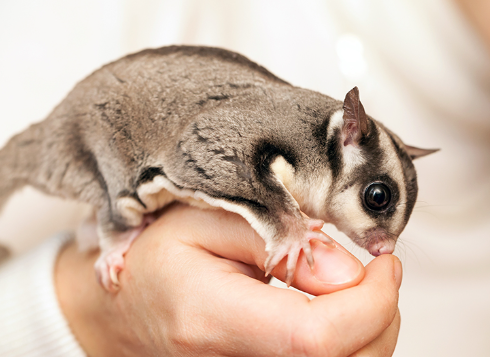Why is my rabbit trembling?
Why is my rabbit trembling?
Rabbits are known for their gentle nature and adorable appearance, making them a popular choice as pets. However, as with any animal, it is important for rabbit owners to be aware of their pet's behavior and any changes that may occur. One behavior that may cause concern for rabbit owners is trembling or shaking. While it is not uncommon for rabbits to exhibit this behavior, it can be unsettling for pet owners who may wonder if their furry friend is in distress. In this article, we will explore the various reasons why rabbits may tremble and what it could potentially indicate. By understanding the possible causes of a trembling rabbit, owners can ensure the well-being and health of their beloved pet. Whether you are a seasoned rabbit owner or new to the world of rabbit care, it is essential to have a comprehensive understanding of your pet's behavior and what it may signify. So, let us delve into the possible reasons behind a trembling rabbit and learn how to provide the best care for these gentle creatures.
Why is my rabbit quivering?
Rabbits are known for their gentle and timid nature, making them a popular choice as household pets. However, despite their docile demeanor, rabbit owners may occasionally notice their furry companions exhibiting trembling or shaking behavior. This sudden onset of shaking can be concerning and may raise questions such as, "Why is my rabbit trembling?" While trembling can be a normal physiological response in certain situations, it can also be a sign of underlying health issues. As a responsible pet owner, it is crucial to understand the reasons behind your rabbit's trembling and take appropriate action to ensure their well-being. In this article, we will discuss the common causes of rabbit trembling, provide advice on how to distinguish between normal and abnormal shaking behavior, and offer tips on how to help your rabbit in distress. By the end, you will have a better understanding of why your rabbit may be trembling and how to provide the best care for your beloved pet.
read also : why is my bunny not eating ?
Understanding Rabbit Behavior: Why Is My Rabbit Trembling?
Rabbits are delicate creatures, and as a pet owner, it is crucial to understand their behavior and body language. If you've noticed your rabbit trembling, you may be concerned about their well-being. Trembling in rabbits can be due to various reasons—some benign and others requiring immediate attention. In this article, we'll explore the common causes of trembling in rabbits and what actions you should take to ensure the health and happiness of your furry friend.
Common Causes of Trembling in Rabbits
1. Fear or Anxiety
Rabbits are prey animals, which means they are naturally skittish. A new environment, loud noises, unfamiliar people, or the presence of predators like dogs or cats can induce fear, leading to trembling. Always try to create a calm and secure environment for your rabbit.
2. Pain or Discomfort
If your rabbit is in pain, it might tremble. Pain can arise from injuries, gastrointestinal issues like gas or bloating, dental problems, or urinary tract infections. It's essential to observe any additional symptoms such as changes in appetite, posture, or litter habits, and consult a veterinarian promptly.
3. Temperature Extremes
Rabbits are sensitive to temperature changes and can tremble if they're too cold. On the other hand, they can also overheat easily. Ensure your rabbit has a comfortable habitat with appropriate bedding and protection from draughts or direct sunlight.
4. Excitement or Anticipation
Not all trembling is bad. Sometimes, rabbits may tremble or quiver with excitement, especially when they anticipate something enjoyable like feeding time or play. It's important to recognize the difference between happy quivers and those of distress.
5. Health Issues
More serious health concerns like head tilt, encephalitozoon cuniculi (a parasitic infection), or even heart problems could cause your rabbit to tremble. These conditions require veterinary diagnosis and treatment.
- What to Do If Your Rabbit Is Trembling
Observe Carefully:
Note any other unusual behaviors or symptoms that accompany the trembling.
Minimize Stress:
Remove stressors and provide a safe, quiet space for your rabbit.
Check the Environment:
Ensure the temperature is comfortable and the rabbit's habitat is free from draughts or overheating risks.
Consult a Veterinarian:
If you suspect pain, discomfort, or an underlying health issue, seek professional advice immediately.
Conclusion
Trembling in rabbits can be a sign of emotional distress or a symptom of a physical ailment. As a responsible pet owner, it's vital to monitor your rabbit's behavior closely and maintain regular veterinary check-ups. By understanding the nuances of rabbit body language and responding to their needs, you can provide a nurturing environment for your companion to thrive.
Remember, when in doubt, always err on the side of caution and consult with a veterinarian who specializes in small mammals and can offer personalized advice for your rabbit's health.
-

1











Leave a comment